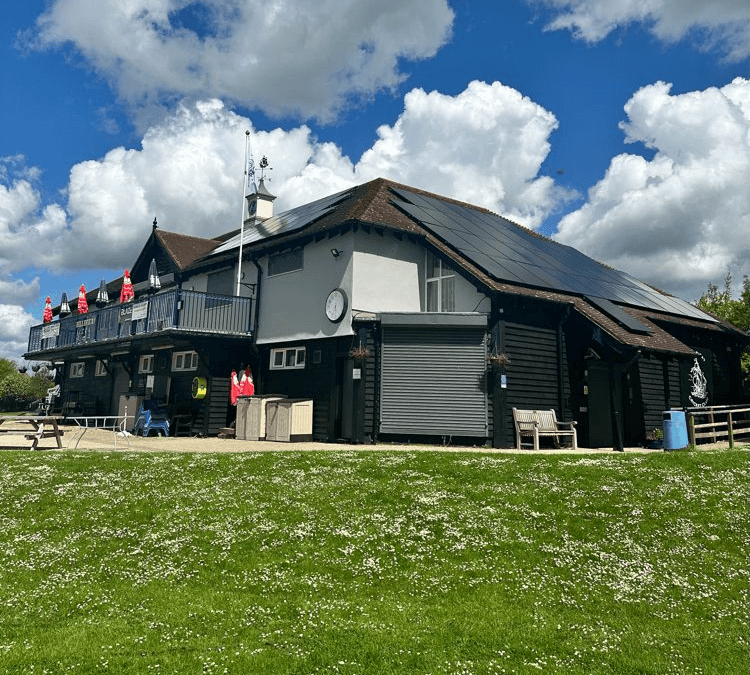Solar panels on houses and residential properties have become increasingly common in the last year. The number of individuals seeking a more sustainable way of living continues to grow each year. However, the pursuit of a greener existence is not limited to domestic life. Investing in commercial solar panels is an excellent way to reduce energy costs, decrease reliance on fossil fuels, and demonstrate to your customer base that your commitment to eco-friendly options extends beyond mere words. In this article, I will address five frequently asked questions about installing commercial solar panels.
Does my business require planning permission for commercial solar panels?
In most cases, businesses do not need planning permission to install commercial solar panels. However, it is crucial to verify this information before proceeding with any orders or scheduling work. Familiarize yourself with any legal restrictions that may be applicable, such as panel size, quantity, placement, and angle. If you do not own the building in which your business operates, you will need the landlord’s consent for the installation. The landlord may need to investigate whether they are permitted to authorize the work under the terms of their mortgage or other lending agreements, as well as local council or authority regulations.
What do I need to consider when choosing commercial solar panels?
When considering the selection of commercial solar panels, there are several crucial factors that demand careful consideration. These encompass a range of aspects, including cost and specific requirements. One of the primary concerns is whether the chosen roof surface is physically suitable for the installation of commercial solar panels. It is imperative to assess whether the roof surface can bear the weight of the panels, receive adequate sunlight exposure, and avoid causing any visual disturbance to neighbouring properties.
Furthermore, it is essential to evaluate whether the energy generated by the solar panels will genuinely offset your current energy bills to a degree that justifies the initial investment. This financial aspect necessitates a thorough analysis to determine the long-term benefits and potential savings.
Equally important is the selection of a reputable company to install the solar panels. Conducting comprehensive research is highly recommended to identify a trustworthy and reliable provider. Reputable companies typically boast a track record of positive reviews, employ non-pushy sales techniques, and prioritize exceptional customer service like NxtGen Energy ltd.
By carefully considering these factors, you can make an informed decision when choosing commercial solar panels, ensuring optimal performance, financial viability, and a positive impact on both your energy consumption and the environment.
How do commercial solar panels work?
Commercial solar panels operate by harnessing the sun’s energy and converting it into usable electricity. This process is achieved through the utilization of photovoltaic cells, which are organized into panels and strategically installed on roof surfaces that receive ample sunlight exposure.
The solar energy collected is then transformed into direct current (DC) electricity, which subsequently flows into an inverter that converts it into alternating current (AC). This AC current can be seamlessly integrated into the property’s electrical system, empowering the operation of lights, heating systems, appliances, and other electrical devices, just like electricity derived from conventional sources.
Moreover, any excess energy generated by commercial solar panels can be efficiently stored in a solar battery for later use, particularly during periods of reduced sunlight such as cloudy weather conditions or at night. Alternatively, surplus energy can be sold back to the National Grid, effectively offsetting the initial installation costs.
By leveraging this innovative technology, commercial solar panels not only provide a sustainable and environmentally friendly energy solution but also offer the potential for long-term cost savings and energy independence.
What advantages can commercial solar panels offer to my business?
The financial benefits are evident – reductions in bills from traditional energy sources to assist with overhead costs, the potential to sell excess electricity back to the National Grid, and the eligibility for grants to support sustainable initiatives within businesses. However, the implementation of commercial solar panels also serves to inspire and retain employees who are passionate about working for environmentally conscious companies. Moreover, it aids in strengthening relationships with customers and industry peers. By incorporating commercial solar panels, businesses can make significant strides towards achieving their goals of attaining net zero carbon emissions, gaining energy independence, and combating the adverse effects of climate change.
How much will commercial solar panels cost?
The answer to this question really does depend on the size and type of panels being considered. There may also be additional costs associated with checking the property is suitable for their installation, or in upgrading or expanding on existing photovoltaic systems. There may be grants and loans available to help with initial installation costs. If your business can sustain the initial outlay, it can read large rewards over the longer term, as energy costs reduce. Many installation companies include an element of after-sales support and annual maintenance in their quote, and/or offer competitive rates for regular servicing contracts and repair work.
Commercial Solar Panels Frequently Asked Questions
Commercial solar is the use of solar energy to power businesses, such as factories and offices. Commercial solar panels are usually bigger than residential ones, because they need to capture more sunlight and produce more electricity. The most common types of commercial solar panels are Monocrystalline and Polycrystalline solar panels, which are also used in homes. By switching to solar energy, businesses can lower their energy bills and their environmental impact.
Saving money is the main reason why businesses in the UK go solar. You can lower your energy bills and use the extra cash for other things. Current UK Government incentives make it even better. Going solar is good for the environment too. It lowers the carbon footprint of the business, and many people care about that and choose where to work or buy based on that information. Setting these solar energy goals early will make the solar research easier. It will help with the proposal and ROI (Return On Investment) analysis when you talk to a solar design team, like NXTGEN Energy Ltd.
Commercial solar is not the same for everyone. Each solar PV system is different. The price depends on your solar energy goals and your building details. For example, roof space, and infrastructure. How much energy do you use during the day or the night? How much tax do you pay and can solar incentives help? These and other factors affect the cost and the energy output of commercial solar panels. A good commercial solar consultant, like the team at NXTGEN Energy can help you with the process and give you a savings and cost estimate that matches your goals and facility.
Cutting costs is always a good idea for any business in the UK. Solar energy is a great option for that. It may seem pricey at first for your business, but it pays off in the long run. The advantages of solar panels are much bigger than their cost.
Most businesses and community buildings can install solar panels without planning permission, as long as they follow some rules. These rules are meant to reduce the visual impact of the solar panels on the building and the local area.
For example, the solar panels should not stick out too much from the roof or the wall, or be too close to the edge. They should also not face a road in some protected areas, such as Areas of Outstanding Natural Beauty. Ground-mounted solar panels should not be bigger than 9m2.
However, some buildings or sites that are historically important, such as listed buildings or ancient monuments, need planning permission to install solar panels. The same applies to solar PV systems that are larger than 50kW.
If you are not sure about the planning requirements for your solar panel installation, you can always ask us at NXTGEN Energy. We have years of experience in the solar industry and we can help you with any solar questions.
A solar battery can store the excess electricity that your solar panels produce, so you can use it later when you need it. This can be useful if your business works outside normal business hours or has a large rooftop that can generate more solar power than you use. However, not every business needs a solar battery. It depends on how much energy you use and when. To find out if a solar battery is right for you, you can book a free consultation and survey with us at NXTGEN Energy. We will design a commercial solar PV system that suits your needs. Call us today on 01268 928 690 to book!
Solar panels do not work if the National Grid is down. This is for technical and regulatory reasons. Technically, solar panels make power when the sun is up. They send extra power to the National Grid for a credit. They get power from the National Grid when they need more. This is a balance. Commercial solar helps you buy less power in the day and save money. Regulations are the other reason. Solar arrays can be dangerous for repair crews if they send power to the National Grid during outages. So energy rules say solar arrays must shut down when the National Grid is down.
Are you ready to invest in Commercial Solar Panels & convert to clean energy?
If you are a UK business owner and interested in learning more about how much money you could save with a Commercial Solar PV System, contact our expert solar energy team today. We specialise in commercial solar panels in Essex, but we also do installations across the south-east of the UK. By filling out our contact form, our team will provide you with a free no-obligation quote to install a bespoke commercial solar PV system, catered to your business energy needs. Call us on 01268 928 690 or click the ‘Enquire Now’ button below to claim your free no-obligation quote & commercial solar PV system design.
NXTGEN Energy – Your Trusted Solar Energy Solutions Partner 💚
Latest Solar Panel Posts
- Guide to Solar Powered Generators
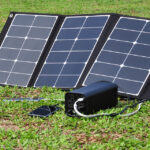 ☀️ Solar powered generators are generally small, quiet and ideal for camping or boating trips. ☀️ Solar powered generators are usually easier to maintain than fossil fuel-powered generators. ☀️ Solar powered generators can be expensive, and don’t always have a high power output. Solar energy is essential for a greener future. And portable solar powered… Read more: Guide to Solar Powered Generators
☀️ Solar powered generators are generally small, quiet and ideal for camping or boating trips. ☀️ Solar powered generators are usually easier to maintain than fossil fuel-powered generators. ☀️ Solar powered generators can be expensive, and don’t always have a high power output. Solar energy is essential for a greener future. And portable solar powered… Read more: Guide to Solar Powered Generators - Why Leisure Centres Should Invest in Solar Panels
 In recent years, the concept of sustainability has become increasingly vital in various industries, including leisure centres. As the global focus shifts towards environmental conservation and renewable energy sources, leisure centres are recognizing the importance of investing in sustainable practices to reduce their operating costs and their carbon footprint. One such sustainable solution gaining traction… Read more: Why Leisure Centres Should Invest in Solar Panels
In recent years, the concept of sustainability has become increasingly vital in various industries, including leisure centres. As the global focus shifts towards environmental conservation and renewable energy sources, leisure centres are recognizing the importance of investing in sustainable practices to reduce their operating costs and their carbon footprint. One such sustainable solution gaining traction… Read more: Why Leisure Centres Should Invest in Solar Panels - Solar Panels and EPC Ratings
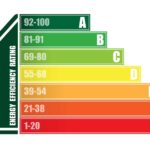 Solar panels have become increasingly popular as a sustainable energy solution, offering numerous benefits for both residential and commercial properties. In parallel, Energy Performance Certificate (EPC) ratings serve as indicators of a building’s energy efficiency. Understanding how solar panels can impact EPC ratings is crucial for maximizing energy savings and environmental benefits. This blog post… Read more: Solar Panels and EPC Ratings
Solar panels have become increasingly popular as a sustainable energy solution, offering numerous benefits for both residential and commercial properties. In parallel, Energy Performance Certificate (EPC) ratings serve as indicators of a building’s energy efficiency. Understanding how solar panels can impact EPC ratings is crucial for maximizing energy savings and environmental benefits. This blog post… Read more: Solar Panels and EPC Ratings - SunSynk Batteries: Innovative Energy Storage
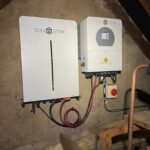 SunSynk Batteries have emerged as a leading solution in the realm of energy storage, offering a range of innovative features and benefits that cater to various applications. With a focus on sustainability and cutting-edge technology, SunSynk Batteries have captured the attention of residential, commercial, and industrial consumers alike. This blog post delves into the intricate… Read more: SunSynk Batteries: Innovative Energy Storage
SunSynk Batteries have emerged as a leading solution in the realm of energy storage, offering a range of innovative features and benefits that cater to various applications. With a focus on sustainability and cutting-edge technology, SunSynk Batteries have captured the attention of residential, commercial, and industrial consumers alike. This blog post delves into the intricate… Read more: SunSynk Batteries: Innovative Energy Storage - Solar Industry Update: Battery Installations in Lofts
 The British Standards Institute (BSI) has recently released new recommendations regarding home battery installations, including those in loft spaces. One common inquiry we receive from our customers following the publication of the Publicly Available Specification (PAS) is whether a solar battery can be installed in a loft. The answer is a resounding yes, with some… Read more: Solar Industry Update: Battery Installations in Lofts
The British Standards Institute (BSI) has recently released new recommendations regarding home battery installations, including those in loft spaces. One common inquiry we receive from our customers following the publication of the Publicly Available Specification (PAS) is whether a solar battery can be installed in a loft. The answer is a resounding yes, with some… Read more: Solar Industry Update: Battery Installations in Lofts - Voltage Optimisers, What Are They and How Do They Work?
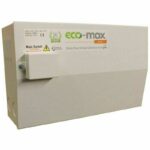 What is voltage optimisation? A voltage optimiser is a smart device that can help you save energy and reduce your carbon footprint. It works by adjusting the power supply from the National Grid to the ideal level for your electrical devices and appliances at home or work. This way, you can use less electricity and… Read more: Voltage Optimisers, What Are They and How Do They Work?
What is voltage optimisation? A voltage optimiser is a smart device that can help you save energy and reduce your carbon footprint. It works by adjusting the power supply from the National Grid to the ideal level for your electrical devices and appliances at home or work. This way, you can use less electricity and… Read more: Voltage Optimisers, What Are They and How Do They Work? - Powering Care with Sunshine: How Solar Panels Benefit Nursing Homes
 Nursing homes are the backbone of our communities, providing essential care for our elderly population. But keeping these facilities running smoothly requires a significant amount of energy – lighting, heating, cooling and medical equipment all contribute to a hefty energy bill. This is where commercial solar panels come in, offering a win-win solution for both… Read more: Powering Care with Sunshine: How Solar Panels Benefit Nursing Homes
Nursing homes are the backbone of our communities, providing essential care for our elderly population. But keeping these facilities running smoothly requires a significant amount of energy – lighting, heating, cooling and medical equipment all contribute to a hefty energy bill. This is where commercial solar panels come in, offering a win-win solution for both… Read more: Powering Care with Sunshine: How Solar Panels Benefit Nursing Homes - Who are NXTGEN Energy Ltd?
 NXTGEN Energy Ltd are a solar energy company based in Rayleigh, Essex, UK. They specialize in the installation of solar panels, battery storage systems, and electric vehicle chargers for homes and businesses across the UK. They are MCS certified, which means they meet the Microgeneration Certification Scheme’s standards for quality and safety. This makes them… Read more: Who are NXTGEN Energy Ltd?
NXTGEN Energy Ltd are a solar energy company based in Rayleigh, Essex, UK. They specialize in the installation of solar panels, battery storage systems, and electric vehicle chargers for homes and businesses across the UK. They are MCS certified, which means they meet the Microgeneration Certification Scheme’s standards for quality and safety. This makes them… Read more: Who are NXTGEN Energy Ltd? - String Inverter vs Microinverter: Centralized vs Modular
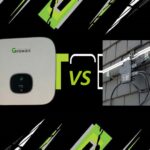 Imagine waking up to a sunny morning, not just because the birds are chirping, but because your roof is silently turning sunlight into clean energy for your entire home. That’s the beauty of solar power, but with all the different equipment options, it can feel overwhelming. One crucial decision you’ll face is choosing between string… Read more: String Inverter vs Microinverter: Centralized vs Modular
Imagine waking up to a sunny morning, not just because the birds are chirping, but because your roof is silently turning sunlight into clean energy for your entire home. That’s the beauty of solar power, but with all the different equipment options, it can feel overwhelming. One crucial decision you’ll face is choosing between string… Read more: String Inverter vs Microinverter: Centralized vs Modular - Why UK Homeowners with Solar Panels Need Bird Proofing (Beyond the Basics)
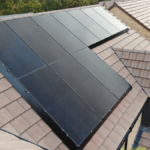 Imagine waking up to the quiet hum of your solar panels, generating clean energy to power your home. It’s a beautiful image, symbolizing lower electricity bills and sustainability. But what if a gang of birds decided the solar panels on your roof were the perfect spot for their new condo complex? Unfortunately, this idyllic scene… Read more: Why UK Homeowners with Solar Panels Need Bird Proofing (Beyond the Basics)
Imagine waking up to the quiet hum of your solar panels, generating clean energy to power your home. It’s a beautiful image, symbolizing lower electricity bills and sustainability. But what if a gang of birds decided the solar panels on your roof were the perfect spot for their new condo complex? Unfortunately, this idyllic scene… Read more: Why UK Homeowners with Solar Panels Need Bird Proofing (Beyond the Basics) - How AI could supercharge your solar panels
 Imagine stepping outside on a crisp January morning, a mug of steaming tea warming your hands. You glance at your rooftop, not with dread at energy bills, but with a mischievous grin. Why? Because the sun, that cheeky orb in the sky, is being squeezed for every juicy watt it holds thanks to your AI-powered… Read more: How AI could supercharge your solar panels
Imagine stepping outside on a crisp January morning, a mug of steaming tea warming your hands. You glance at your rooftop, not with dread at energy bills, but with a mischievous grin. Why? Because the sun, that cheeky orb in the sky, is being squeezed for every juicy watt it holds thanks to your AI-powered… Read more: How AI could supercharge your solar panels - New solar panel concept could reduce payback time to just five years
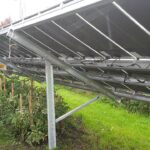 Researchers have conducted a comprehensive analysis and determined that a ground-breaking renewable energy concept has the potential to significantly reduce the payback period for solar panels to less than five years. This innovative approach, known as agrivoltaics or Agri-PV, involves the integration of solar farms with “shadow-friendly” crops. A team of experts from the esteemed… Read more: New solar panel concept could reduce payback time to just five years
Researchers have conducted a comprehensive analysis and determined that a ground-breaking renewable energy concept has the potential to significantly reduce the payback period for solar panels to less than five years. This innovative approach, known as agrivoltaics or Agri-PV, involves the integration of solar farms with “shadow-friendly” crops. A team of experts from the esteemed… Read more: New solar panel concept could reduce payback time to just five years

